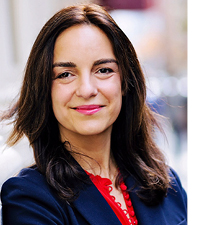View Previous Health Insurance HQs Here
Dear friends,
A new survey on healthcare shows that a majority of New Yorkers believe systemic racism is a problem in health care, and many are delaying or skipping care due to cost and want the government to take action.
Among the key findings were that 85 percent of New Yorkers say the system should be changed to make it more affordable, with 58 percent favoring big, fundamental changes, and 27 percent supporting smaller, modest changes. Nearly 7 in 10 New Yorkers blame the government, insurance companies, the drug industry and hospitals (in that order) for failing to control costs.
The survey confirmed that medical debt has a harmful and lasting impact on low-income New Yorkers and that there is widespread, bipartisan support for legislation to address it.
The survey results captured the views of New Yorkers from five different regions and diverse political affiliations and incomes.
According to the poll, 8 in 10 New Yorkers believe gender, sex, language and immigration status should not make it harder for someone to get quality healthcare. Political affiliation was not a factor, with 90 percent of Democrats, 80 percent of Independents and 76 percent of Republicans agreeing with this statement.
The poll also showed that many New Yorkers support increasing consumer assistance services to effectively navigate our complex healthcare system and protect the interests of patients. Let’s face it, it can be dispiriting to wade through 500 private insurance options on the New York State of Health Marketplace, only to be faced with high medical costs. Most of the poll respondents agreed that the government should fund consumer assistance programs that help people choose coverage and get care, which the Artists Health Insurance Resource Center has been doing for the entertainment community for over 20 years.
“This survey confirms what we have known for some time—that healthcare affordability is a grave concern for many New Yorkers, with a majority of them blaming the government for not doing more to bring down costs and make the system more equitable,” said David R. Jones, President and CEO of the Community Service Society of New York. “We hope this survey will be a wake-up call for policymakers to take action and help patients by addressing health care costs, medical debt and health equity concerns which are clearly on the minds of New Yorkers.”
The survey was conducted by the nonpartisan research firm PerryUndem for the Robert Wood Johnson Foundation and the following New York organizations: Community Service Society of New York, The Actors Fund, Citizen Action of New York, Make the Road NY and the New York Immigration Coalition.
Prior research from the Community Service Society found that over 52,000 New Yorkers were sued by non-profit hospitals between 2015 and 2020 for a median amount of just $1,900. Patients typically lose these lawsuits, often because they can’t afford an attorney or can’t leave work to appear in small claims court. These medical debt judgments disproportionately affect low-income New Yorkers and people of color.
Among the other key findings of the report:
- Over 90 percent agree that healthcare needs to be made affordable for everyone, not just some people.
- Nearly 40 percent of New Yorkers say they or a family member are sacrificing healthcare due to the costs.
- 20 percent of New Yorkers paid a healthcare bill they thought was wrong out of fear of being sued.
- Over 40 percent of New Yorkers have either fought a medical bill or paid a bill they thought was wrong.
- One-third of New Yorkers have faced financial hardship as a result of medical bills. Respondents reported being unable to pay for food, heat or housing; using up all or most of their savings to pay off medical bills; and being unable to get a loan because medical debt has impacted their credit.
New York has been a leader in pioneering progressive healthcare programs and services for its residents. Even so, New York’s healthcare system still produces uneven outcomes when it comes to access to health coverage, affordability and quality healthcare based on race, ethnicity and economic status.
This survey offers policymakers important information on the shortcomings of the healthcare system from the perspective of consumers and patients, as well as the kinds of system reforms they believe will help bring down medical costs. The survey also explored specific policy solutions for improving the health care system for patients. These include prohibiting hospitals from placing liens on patients’ homes or garnishing their wages (which 70 percent of respondents support); removing barriers to care based on immigration status; and funding for an independent consumer assistance program.
Using this information, state lawmakers have an opportunity to address affordability and inequities in our state’s healthcare system, such as passing Coverage4All legislation (A.880/S.1572) that would provide health coverage to immigrants who are uninsurable due to their immigration status, and components of the Patient Medical Debt Protection Act (S.5622/A.7363) that would ban hospitals from placing liens on patients’ homes and garnishing wages in medical debt collection cases.
For too long, healthcare policy in the state and across the nation has been driven largely by the interests of insurance companies, drug companies, hospitals and the infrastructure that supports them. Let’s make our healthcare more affordable and responsive to patients, and take into account the needs and opinions of the very people this system is meant to serve.
Yours in good health,

Renata Marinaro, LMSW
Do you work in performing arts and entertainment and have questions about health insurance? The Actors Fund provides assistance nationally. Please contact the regional office closest to you to connect with a counselor.
New York City
Visit actorsfund.org/ahirc
Los Angeles
Visit ehisca.com